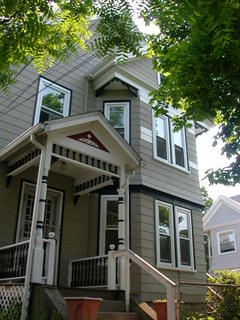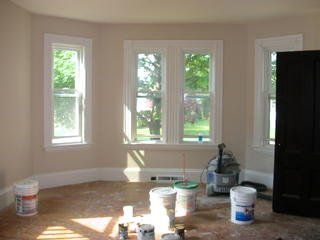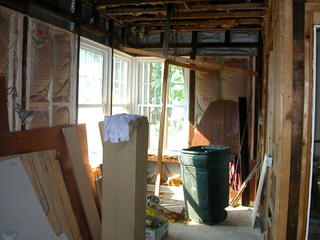April 9, 2007
The housing market, and in particular, the Condo re-development market has been on a slide for the last 9 months in New England. I speculate that the slide was in part created by the speculative increase in the fuels market, specifically gasoline. I believe the consumer tolerance for gasoline is roughly $3 per gallon. Real Estate business in the NE basically turned off once the prices broke this barrier. What do you think created the downturn in Real Estate?
October 11, 2005
A beginning...

With astronomical growth in the real estate over the last 10 years, mortgage rates at historical lows, and an absence of a rental market, condo conversions have become a smart choice for first time buyers and builders alike.
For the most part, a first time buyer is normally shocked to find out that what they're qualified to buy is not necessarily matched to their expectations. Many find that their dream home is in need of extensive restoration. A buyer then has to make a choice between more house with a dated feel or less home with a few more bells and whistles included. Buyers can also be overwhelmed with the amount of time required to maintain a home on a weekly basis. Empty nesters looking to get a foothold back in the city have even opted for the conversion over a more traditional home.
Builders today are faced with a different dilemna although not totally dissimilar from that of the buyer. Land prices have skyrocketed across the Northeast forcing builders to construct larger and larger homes to offset the price. Higher prices restrict the number of qualified buyers, thereby potentially increasing market time to sell. Add to this the rising cost of materials and labor, unavailability of buildable land, and ever more restrictive legislature, the outlook is a bit hazy for builder and buyer alike.
The logical choice is quickly becoming the condo conversion! A condo conversion allows the buyer to obtain many of the ammenities desired while allowing the astute builder to maintain and possibly grow a business. Many of these conversions include exotic wood flooring, high ceilings, modern kitchens with stainless appliances, new heating and air conditioning and so forth. Condo fees are set by the residents of the building. Typically a conversion is self managed by the residents, keeping the monthly fees to a minimum.
Choosing a property for conversion requires a great deal of market research, knowledge of building practices and fin
 ancial backing. A builder that is aligned with the right Realtor, Attorney and Loan Officer can significantly reduce the financial risks associated with development while providing the buyer with more than could be achieved in a single family home purchase.
ancial backing. A builder that is aligned with the right Realtor, Attorney and Loan Officer can significantly reduce the financial risks associated with development while providing the buyer with more than could be achieved in a single family home purchase.
Although preservation and renovation is my preferred method of conversion, others have taken to demolition of an existing building and replacing it with a new development. This practice, though profitable, changes the fabric of the community as well as the landscape forever. Period details are a very marketable and desireable aspects of a condo conversion.
Future posts to this blog will contain tips on how to identify a property for conversion, updates on current projects like the ones shown from from 201 Ash Street in Waltham, and on pricing out a condo for sale.
Subscribe to:
Comments (Atom)